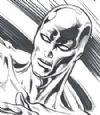|
ESL Forum:
Techniques and methods
in Language Teaching
Games, activities
and teaching ideas
Grammar and
Linguistics
Teaching material
Concerning
worksheets
Concerning
powerpoints
Concerning online
exercises
Make suggestions,
report errors
Ask for help
Message board
|
ESL forum >
Ask for help > correct preposition
correct preposition
|

Pedro14

|
correct preposition
|
|
Hi there, I �ve always taught my students that the correct preposition to use after the adjective "bored" was "with". However, in the book "optimise B2" the preposition "of" is also given as a correct answer. All of my printed dictionaries such as "collocations dictionary" by oxford give "with" as the correct preposition. However, as English and all languages are constantly evolving, I wonder if you would give "of" as correct in an exam. Another question I have and which I would really appreciate if anyone could give me a hand with is about how can I explain my students when to use the structure "what .... like". One of my students wrote the following sentence: " I wonder how life would be in ten years � time." Since I don �t know to what extent is that sentence literal to Spanish I told my student to say "I wonder what life would be like in ten years � time" instead. Is my student �s sentence correct? If so, is there any difference between his sentence and mine? Thanks a bunch for your time and help. Have a nice day all! |
15 Nov 2018
|
|
|
|

cunliffe

|
|
Hi Pedro, Many people do say �bored of � these days - mostly the young! I personally don �t like it, but I can �t say it �s not correct. I would ask my students to use �bored with � in a piece of formal writing, but if textbooks are starting to accept it, maybe we should too. As for your student �s question, it �s fine if followed up by an if clause, �I wonder how life would be in ten years � time, if we were hit by a giant asteroid. � Otherwise it should be simple future, �I wonder how life will be in ten years � time. � It �s not the most usual way to express it, and like you, I prefer, �I wonder what life will be like in ten years � time. � Or �I wonder what life would be like in ten years � time if this or that happened. �
|
15 Nov 2018
|
|
|

Antonio Oliver

|
|
Hi, A few months ago I uploaded a WS with a very simple rule, surely with many exceptions: WITH comes after the "happy" family of adjectives: delighted with, satisfied with, etc. OF comes after adjectives that deal with a physical, obvious appearance of the people referred, ie proud of, suspicious of, etc. Perhaps BORED would fall in both categories? Hope that helps, |
15 Nov 2018
|
|
|

ldthemagicman

|
|
Pedro 14, I give you the following information. �A Comprehensive Grammar of the English Language �, (2010), By Professors Quirk, Greenbaum, Leech, Svartvik, and Crystal, 16.69, page 1222, gives a list of Participial Adjectives, (Adjectives formed from the Participle), which are followed by the Preposition �WITH �. Annoyed; bored; concerned; delighted; depressed; disappointed; disgusted; dismayed; distressed; drunk; enchanted; obsessed; occupied; overcome; pleased; satisfied; taken. For example: "I am annoyed with his attitude!" The student was bored with the one-hour Lesson. No other preposition is mentioned in this section of �Comprehensive Grammar�.
Oxford Collocations Dictionary, 2016, page 79, describes the Adjective, �bored�, and gives appropriate word combinations ... Verbs, Adverbs, Prepositions, Phrases.
PREPOSITIONS: �At�- Her husband was bored at the prospect of going shopping. �By� - He seemed slightly bored by the whole process. �With� - He was bored with their conversation.
With regard to your second question, Pedro14, in my opinion, Lynne Cunliffe has given you an excellent answer. Les Douglas
|
16 Nov 2018
|
|
|

Pedro14

|
|
Thanks to all for your help. Have a nice Sunday! |
18 Nov 2018
|
|
|